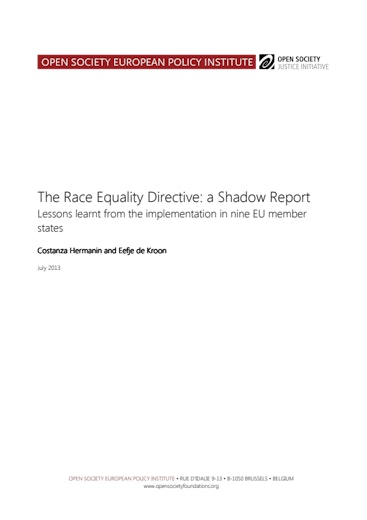Discrimination often goes unnoticed and unreported. Without reliable data on the life experiences of groups at risk of discrimination states cannot measure equality gaps and design policies accordingly. In the absence of data, victims cannot prove to lawmakers, courts or employers that differential treatment exists and needs to be addressed.
We also know the extent to which companies and governments use data to monitor and control individuals. European States are now discussing how to better protect citizens’ privacy. As long as data is collected in a way that is compatible with data protection standards, data can be used to enforce fundamental rights.
In order to address these questions, the Open Society Foundations and European Network Against Racism are hosting a symposium on equality data collection to take place on October 24 and 25 in Brussels. The aim of the symposium is to encourage the collection of comparable sets of equality data in Europe while respecting data protection safeguards and self-identification criteria.
RSVP
If you wish to attend this event, please RSVP to Angelina.Atanasova@opensocietyfoundations.org.
Read more
publication
The Race Equality Directive: A Shadow Report

This report collects lessons learned from the implementation of the Race Equality Directive in nine European Union member states.
Resilience in Moldova
Q&A: Moldova’s Path to a European Future

Moldova has endured the Kremlin’s aggression because it has chosen to leave Russia's sphere of influence and supports Ukraine. The impact of the war on daily life—and why the nation is determined to join the EU.
Rethinking the EU
In an Age of Crisis, an Opportunity to Remake the EU

From climate change to rising authoritarianism, Europe is facing a range of crises that threaten the way we live. The EU must seize the opportunity to reshape how it works and rethink what role it plays in a changing world.